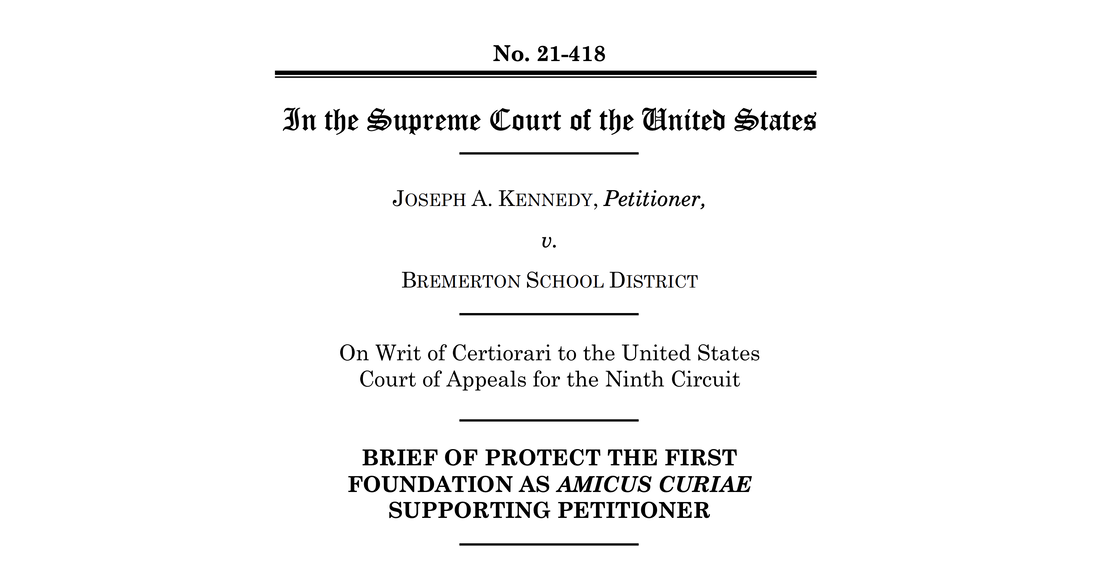Coach Kennedy v. Bremerton School DistricT Joe Kennedy – the “praying coach” fired by the Bremerton, Washington, school district for praying on the 50-yard-line after games were concluded – enjoyed mostly friendly questioning in oral argument before the U.S. Supreme Court today.
Justices Samuel Alito, Neil Gorsuch, Clarence Thomas and Brett Kavanaugh all framed most of their questions in terms sympathetic to Coach Kennedy. Given the record of Justice Amy Coney Barrett of support for religious expression, some long-time observers of the Court predicted today’s hearing suggests an eventual 6-3 ruling in favor of upholding the coach’s prayer as a legitimate and private expression of faith by a government employee. The school district had argued that athletes could feel pressure to participate in prayers with a coach who decides who plays and who does not. “We’re worried that the students will feel he gets to put me into a football game, or not,” said Justice Elena Kagan to Kennedy’s lawyer. But the school district’s contention that Coach Kennedy made a spectacle of his prayer was knocked down by Justice Brett Kavanaugh, who questioned the practicality of drawing a line around private prayer that must not draw anyone’s attention. The assertion by the school district’s lawyers that Kennedy’s actions amounted to government speech, however, fell flattest of all. The tenor of the Justices’ questioning echoed the brief filed by Protect the 1st, which offered many examples of how far the First Amendment’s prohibition of “no establishment of religion” can go with a government employee before violating that same amendment’s promise to protect the free exercise of religion. In the brief of our legal arm, the Protect the First Foundation, we noted that government employees, including teachers, often wear religious garments and undertake short, devotional expressions of faith at work without violating policy. Native Americans wear eagle feathers, Christians show up to work on Ash Wednesday with a smudge on their foreheads, Muslim women wear headscarves, Jewish and Muslim men wear prayer caps. A teacher who is Christian might say grace before lunch. A Muslim teacher might pray during a break between classes. All these actions are routine expressions of private faith that do not in any way constitute government speech. Taken literally, a strict effort to block out all such religious characteristics of government employees would quickly turn oppressive. Based on today’s oral argument, Protect The 1st is optimistic the court will see that expressions of faith by public employees deserve protection. Comments are closed.
|
Archives
June 2024
Categories
All
|
ABOUT |
ISSUES |
TAKE ACTION |



 RSS Feed
RSS Feed